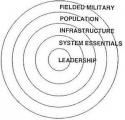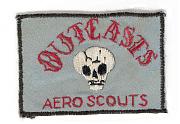Hi Tom and Marct and John Nagl (if you are following this) and anyone else who is interested--
John's book is not only about COIN but also about organizational learning. He pays his respects there to the work of Rich Downie, Learning From Conflict, Praeger. Part of Rich's argument was that the army is a learning organization, an argument I tended to agree with until OIF. But it was not always so, any more than it really is now. In my article, "Little Wars, Small Wars, LIC, OOTW, 'The Gap,' and Things That Go Bump in the Night," LIC&LE 1995, I offered what I thought was part of an explanation for why we go about reinventing the COIN wheel every time we run into an insurgency. My explanation clearly was not adequate.
So, I'm posing the question here: What do all you guys think is the reason we not merely ignore our very good doctrine but actively disparage it? Is there any way we can convince current and future generations of leaders to actually learn the lessons and to institutionalize them in our governmental and military organizations?
With that, I'll go cook dinner.
Cheers
John






 .
. )
)


 . 'sides that, how often do you hear academics talking in plain English anyway
. 'sides that, how often do you hear academics talking in plain English anyway 

 ). They are also rare, as they are in any organization. Who would not want one of these guys on their team, and while we're at it order up a dozen more. Unfortunately, its not that simple.
). They are also rare, as they are in any organization. Who would not want one of these guys on their team, and while we're at it order up a dozen more. Unfortunately, its not that simple. 

Bookmarks